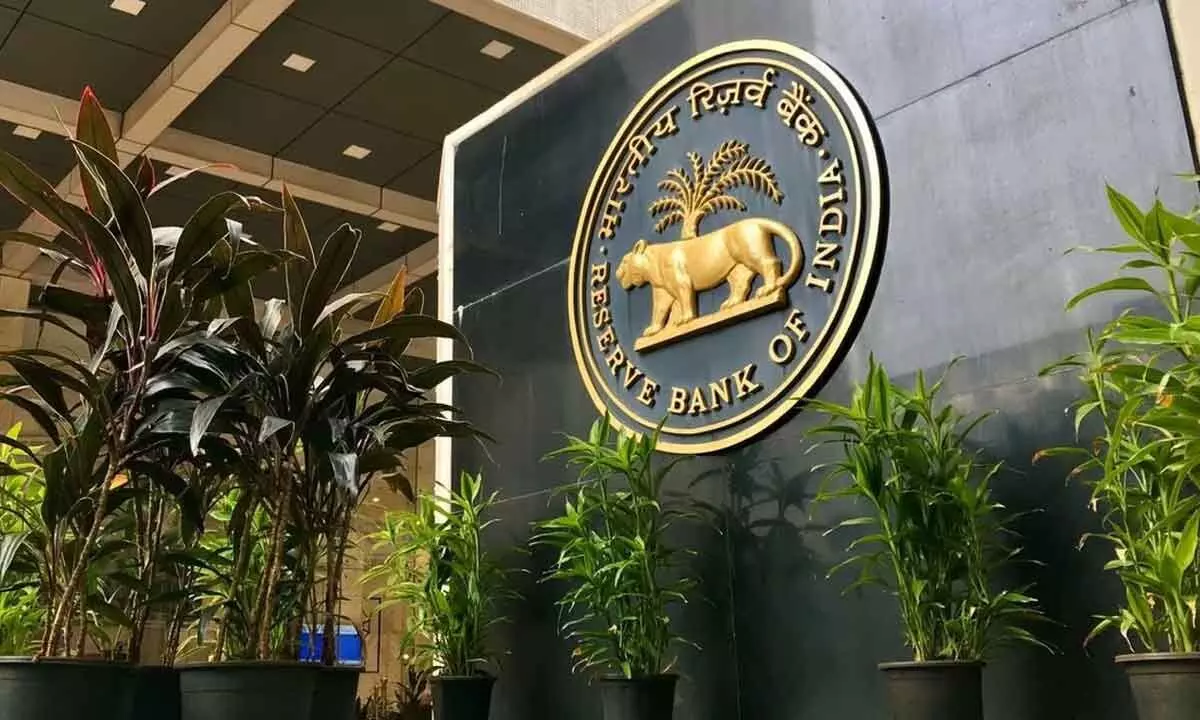Rate pause augers well for economy
Rate pause reflects that RBI remains cautious on inflation
image for illustrative purpose

Mumbai: Sustained pause in the repo rate is poised to benefit India’s economic trajectory positively, feel experts. RBI kept Repo rate unchanged at 6.50 per cent.
Madan Sabnavis, chief economist at Bank of Baroda (BoB), said: “The credit policy was more or less on expected lines. The Governor has maintained that there has still not been complete transmission of the 250 bps hike in repo rate which makes the stance remain unchanged at ‘withdrawal of accommodation’. The RBI has affirmed its confidence in the growth story of India and projected GDP to increase by 7 per cent next year. With growth on target, the concentration will be on bringing down inflation to the target of 4 per cent.”
However, it is expected to increase in Q3 and Q4 to above 4.5 per cent. Hence, there will be a nuanced approach by the RBI.
Sabnavis further says, “we do get a sense that the RBI will have to be convinced that inflation is stable and in the downward path before it embarks on either changing stance or the repo rate.”
As the RBI maintains its stance of no change on interest rates for the sixth consecutive policy review, analysts acknowledge the stability it brings to the financial landscape.
Anu Aggarwal, President & Head Corporate Banking, Kotak Mahindra Bank, said: “The sustained pause in the Repo rate is poised to benefit India’s economic trajectory positively. Moreover, the remarkable growth in capital expenditure witnessed in FY24, coupled with robust capex push by the government underscores a pivotal moment for economic resurgence.”
The capex push also aligns with the broader endeavour to propel India towards achieving its $5 trillion economy milestone, she added.
RBI has extended the festive bonanza that it gave to the homebuyers in its last two policy announcement.
Anitha Rangan, Economist, Equirus says: “In the last policy for this fiscal year, RBI has kept policy unchanged as expected. However, the decision is not unanimous with a 5:1 vote. No change in stance. The policy estimates a strong revision in growth for FY25 to 7 per cent from 6.5 per cent (Q1-Q3FY25) in the previous policy.”
Alongside, inflation is moderately revised downwards to 4.5 per cent from 4.6 per cent in the same period. The Governor in his speech noted that ‘job is not yet finished’ with four per cent target in mind.
While batting for India’s resilience amidst global volatility, it appears that RBI is not in discussion for rate cuts as seven per cent growth is very strong and does not require rate support, Inflation is subject to food price risks and 4.5 per cent is not 4 per cent on a durable basis. Also no giveaways on liquidity. In the quest to preserve the strength and bat for long term growth and RBI will rather look to maintain vigil and not in any rush to cut rates. The 7 per cent growth does not seem to be needing central bank’s nudge.
Upasna Bhardwaj, Chief Economist, Kotak Mahindra Bank, said: “RBI has retained rates and stance in expected lines. Further, the focus on necessity of inflation to settle closer to 4% remains intact suggesting RBI continues to remain cautious on inflation.”
Experts continue to expect RBI to fine tune liquidity conditions to manage the overnight to inch towards the Repo rate. The change in stance could follow towards end of 1QFY25 and subsequently shallow rate cuts starting in 2HFY25.
George Alexander Muthoot, MD, Muthoot Finance, says: “We appreciate the RBI’s prudent decision to keep the Repo rate unchanged at 6.5 per cent and maintain their stance on ‘withdrawal of accommodation’ to align with the evolving growth-inflation dynamics and remaining focused on ensuring sustainable growth for the Indian economy.”
This may keep interest rates slightly elevated in the economy and on credit to small businesses. Analysts remain optimistic on gold loan demand, credit demand from MSMEs, Micro loans and demand for housing loans, given India’s resilient domestic economy, government thrust on capex, strong urban consumption and pick up in rural demand.
The RBI has further announced an important measure to ensure greater transparency for the retail and MSME borrowers. The regulated entities are required to share a detailed document called Key Fact Statement (KFS), listing all the key information regarding a loan agreement. As an NBFC adhering to compliance, corporate governance and taking proactive measures to safeguard the interest of our customers is of prime importance to us, and we welcome this move as it will encourage and enable the borrowers to take informed decisions.

